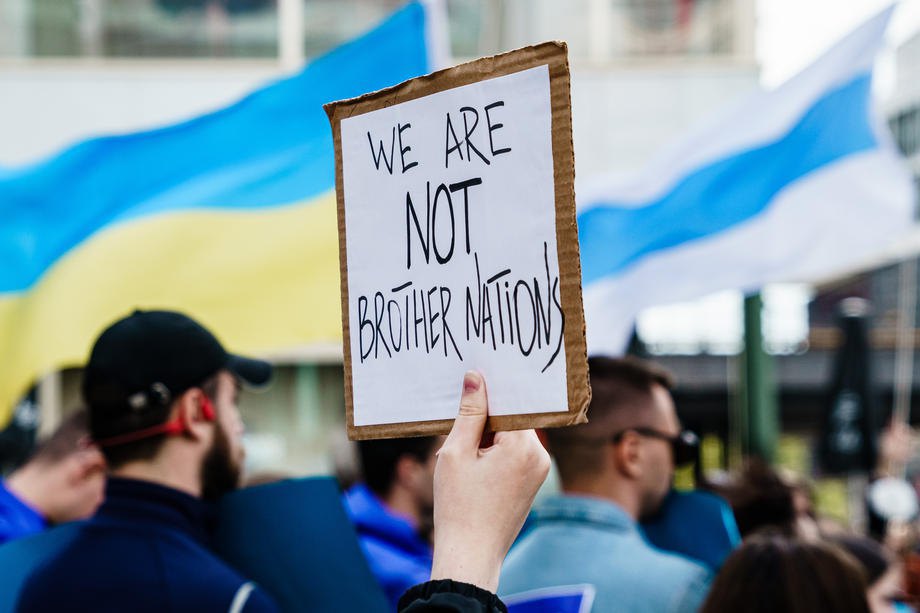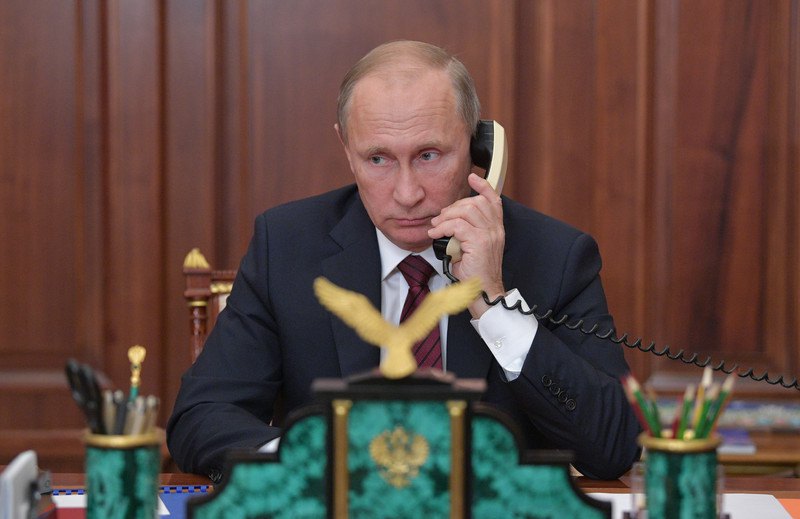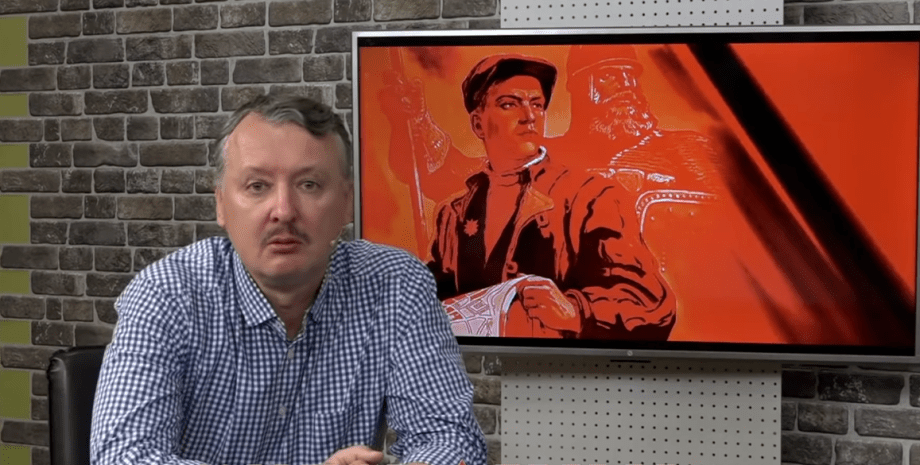
How not to become a victim to the Russian media operations?
This is a question of "how to swim in the river and not to drown. You won't drown if you're not close to the water. But what if you live on the bank of a river or on an island? Then you will inevitably have to deal with the water. So do we: for decades we have been living in the expanse of a кussian information operation and are already swimming in this river.
Our information industry has long been closely linked to the кussian one. Now they have tightened it a little, Internet providers block кussian sites, shut down their channels (Imagine how many seemingly cultured people criticized this change before the war and said that it wouldn’t get us anywhere. But it proved to be a very wise and correct approach.) But we are still in the area of exposure.
Moreover, information rockets hit and exploded before the war, and they affected a lot of people. Sometimes these fragments are too small to be immediately spotted. But now, as the front line moves further away from us (meaning from Kyiv), information operations will get back.
Rockets like "we are for peace", "understand and embrace russia" will arrive again and that's it. And they affect people again, who will then become traitors, collaborators and so on. And the russian propaganda works for them explaining why they have to become traitors.
So the first point is to recognize that we exist in a very specific information environment. Those people who do not realise this can swallow Muscovite murky water and sink psychologically. And not only that, they could also drown legally, if they behave like "helpful idiots".
And the second point - it is necessary to find out for ourselves to what extent we are important to be the object of direct influence. If you are a very important character, it can go on about the terrorist threat. For you or your family. Killing is a tool to change behaviour, not an end in itself.
If you actively function in the information space, the enemy can use you to spread information which is useful to them. Overriding the Russian narrative on his Facebook passionately, you will inevitably be spreading it and actually encouraging everyone to get acquainted with its murky source.
The russians can thrive on people's vanity. A large number of people are actively functioning in th Media space. Not professional journalists, they are not responsible for what they broadcast. They are bloggers, leaders of public opinion, etc.
These people need to remind their audience about their existence every day. Even if they have nothing to say, they have to say something. And that is why they often lend themselves to commenting on russian narrative without considering them as toxic .
Sometimes even the readers themselves, the subscribers ask them to comment on this or that katsapian text or Putin's phrase. They ask what you think about it? There is already a sign of group information malpractice or ignorance. It would be like if people saw a bomb in the middle of their neighbourhood that did not detonate and decided to collectively disperse it.
Or media guys need to boost watchability at the expense of hype. This situation is disgusting in both cases before the war as well as during it. The public may not have read these russian statements, but they are told: "Putin said so, it's terrible, bear with us, now we will talk about it. And editors are looking for a person who will comment intelligently on what Putin has said. This is the case of the aim of the information operation being achieved.

An information operation is never the work of a single man or a handful of men. It is a complex sequence of actions, a mosaic. If you are looking at one part of the mosaic - it is just a pebble. Seems like no big deal? It was put down, and it lies there. And when you go a little further , you see the whole picture and understand that this pebble has its exact function in the whole picture.
How not to become a victim of an information operation? It depends on the type of your response. If it's emotional - oh, you can’t imagine what I’ve read - then you can at least try not to spread your emotional reaction in social media. But talk, for example, with some of your friends. If, however, there is a need to rationalize what you've read or read, consider whether it's really worth it to share your thoughts in the social network. Perhaps you are an expert on the subject? Then so. But you can not be equally competent in all matters. Leave digging up dirt to the experts and feel for them.
Can you give an example of a good russian IPSO of recent times?
For example, Serhiytsev's article that Ukraine must be put down.
This is a manifesto of intimidation. It aims to spread panic and the attitude "we will all die if we do not make peace with russia". But you know, our readers are those who don’t fall for this. I mean the readers of LB.ua who work, fight, volunteer, help, who are competent and knowledgeable. Information operations never aim at this intelligent part of society. Generally, information operations work with the "gray area" of society, which the media traditionally overlook.
Information operations are designed for those who can be turned into traitors or used for such purposes. And propaganda is an explanation, which is given to already existing, convinced traitors.
From what I see now, the left-socialist context will be injected - both into the European informational space and into ours. For example, that both Putin and Zelensky are imperialists, that it is all about imperialist war, the Russians are not to blame. This is a remake of the Bolshevik propaganda of the First World War: the bourgeois made mischief between the workers and peasants and drove them into a fratricidal war. In our case it’s gonna be like this “ politicians put people at odds, but all people are good and may they reconcile with each other”. This is one topic. And the other is that there are "good" russians we can be friends with. They will include themes like culture , children, environment, human values – beyond doubt. It will be voiced by beautiful and thoughtful people with good English and some kind of quasi-significant status.
Imagine the scale. At one end of it there’s the clinical psychopath Serhiytsev, and at the other end there’s the politically liberal Latynina with different "Medusas". But they have the same task in principle: to lead us to the warm embrace of russians. The "bad cop" and the "good cop” is an old picture of the mediocre detective stories about the police. Sergheytsev is an intimidator and Latinina is a passionate protector (may God forbid such protection), but it is the same pair of shoes: left and right.
"We are brothers, good Russians, we are against Putin". And all this is presented in a very professional and beautiful way in terms of style and ability to influence people. More provincial part of the audience fall for the quality of the picture and the reputation. Didn't the Russians kill us enough for you to look for authority among them?
My God, there is also Mr. Strelkov, whom Ukrainians read and repost. Mr. Strelkov is the IPSO?
Yes, he is. I would put him at the end of the scale, with Latynina. They talk about Russia's failure and they have their own audience of fans.

Strelkov is definitely IPSO, it is written all over his face. In Russia, people are being arrested in the streets for funny pictures, which might imply something. And here the man is going on full blast about the weakness of the Russian army. But the truth is he does that just to attract attention. And then they incite russian patriotism, "let's show everyone what we can do". Behind these speeches there is a real message that they need to declare war, mobilization, nuclear war . As the current situation is insufficient for Russia's victory.
So this IPSO is designed for Russians, not Ukrainians?
I think so.
He is a convinced white russian , a Ukrainianophobe. How can he influence the Ukrainians? He can disorient them. They believe what he says because they like listening about weak Russia. But he is an enemy. Information from the enemy's side can never be treated as truthful.
Does this apply to the articles on "Meduza"?
Every single piece of information in russian language cannot be ideally treated as truthful. Do you want military analytics? Read Thomas Cooper, Erick Below or Tim Lister. From ours - Kopitka, Zhdanov, Panich.
There are many people who laconically describe the essence of happening. And there are official Ukrainian sources that provide truthful information within the limits of what can be made public.
But no, the Ukrainians are still trying to extract something from what the russians write. Looking for the raisins in the pile of crap . Don't look for them, there are no raisins there.
We don't need to read and discuss all this. Neither "good" Latynina, nor Strelkov or Sergiytsev. Do you remember, in "Alice in Wonderland" there was a phrase: "What do Englishmen do, when they get into an unpleasant situation? They pretend they're not in trouble sitting and continuing drinking tea".
Well, we can follow suit of the British, whom we love and respect not only for their sense of humour but also for their democratic principles. We are the subjects of informational influence. So what? We can drink tea. It's better than shouting: "We are being influenced, we will all die. Or sharing with each other what they write on Facebook about one more russian fake








